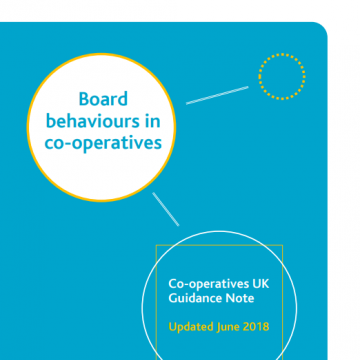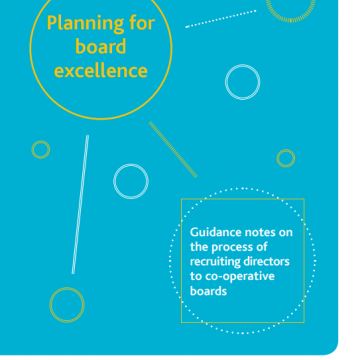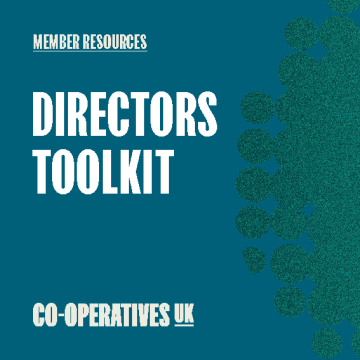An effective board
A board with the appropriate balance of skills, experience, independence and knowledge is key to the success of a co-operative.
Five key elements
We identify five key elements in creating an effective board.
Composition and recruitment
A understanding of the role of the board is a vital step when considering the optimum size of the board and the skills and experience required on the board in order to meet the needs of the co-operative. It can also help a co-operative to develop its recruitment processes for new directors and identify how to develop the skills of its existing directors. Having a balanced board comprised of elected members and, in many cases, independent non-executive directors can contribute the development of an effective board.
Dynamics and behaviour
Having the correct mix of skills and experience on a co-operative board must go hand in hand with enabling directors to develop appropriate behaviours when carrying out their role whether this is when participating in a board meeting or when reporting to members and other stakeholders on co-operative performance. A growing co-operative must develop the softer skills of its directors in order to develop a healthy board culture.
Succession planning
Developing a pipeline of suitably experienced and skilled directors ready to serve on a co-operative's board can be challenging. However, it is important for the long term success of a co-operative to align succession planning with the co-operative's business planning and strategy, identify appropriate mechanisms to source experienced directors and adopt a continual process of board assessment and evaluation to ensure an effective board.
Planning for board excellence
Skills
Having a good understanding of the role of the board and how this aligns with a co-operative's business planning and strategy will assist a co-operative to identify and celebrate the contribution of existing directors but also understand where skills gaps are. This understanding will help underpin the personal development of existing directors but will also assist with the evaluation of the board as a whole.
Evaluation
Evaluating the board's performance and that of individual directors provide a valuable insight into how well the board is working collectively as well as examining the individual input of individual directors. Evaluation forms part of the wider development of an effective board as done regularly it can be a useful tool to identify the positive contributions of directors, skills gaps and assist succession planning.

Board behaviours in co-operatives

Planning for board excellence

Directors toolkit

Co-operative Corporate Governance Code
